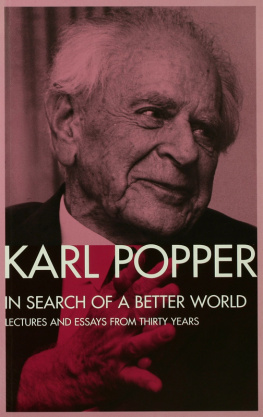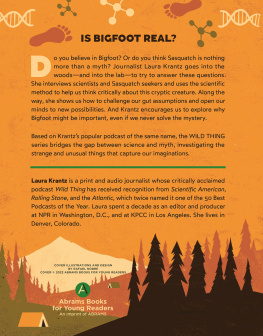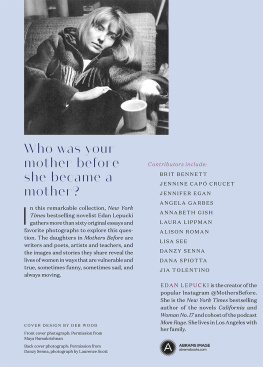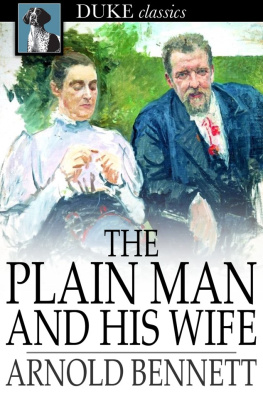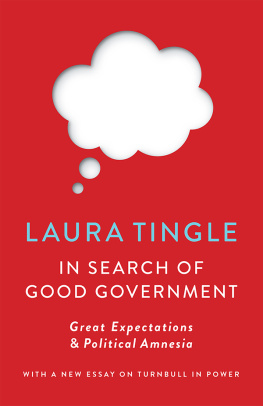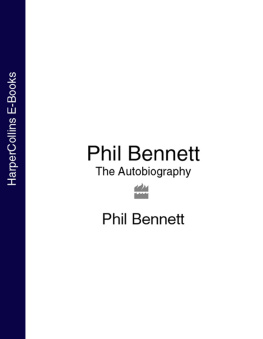Bennett Laura J. - In search of a better world: lectures and essays from thirty years
Here you can read online Bennett Laura J. - In search of a better world: lectures and essays from thirty years full text of the book (entire story) in english for free. Download pdf and epub, get meaning, cover and reviews about this ebook. City: London, New York, year: 2000, publisher: Taylor and Francis; Routledge, genre: Religion. Description of the work, (preface) as well as reviews are available. Best literature library LitArk.com created for fans of good reading and offers a wide selection of genres:
Romance novel
Science fiction
Adventure
Detective
Science
History
Home and family
Prose
Art
Politics
Computer
Non-fiction
Religion
Business
Children
Humor
Choose a favorite category and find really read worthwhile books. Enjoy immersion in the world of imagination, feel the emotions of the characters or learn something new for yourself, make an fascinating discovery.
- Book:In search of a better world: lectures and essays from thirty years
- Author:
- Publisher:Taylor and Francis; Routledge
- Genre:
- Year:2000
- City:London, New York
- Rating:4 / 5
- Favourites:Add to favourites
- Your mark:
- 80
- 1
- 2
- 3
- 4
- 5
In search of a better world: lectures and essays from thirty years: summary, description and annotation
We offer to read an annotation, description, summary or preface (depends on what the author of the book "In search of a better world: lectures and essays from thirty years" wrote himself). If you haven't found the necessary information about the book — write in the comments, we will try to find it.
In search of a better world: lectures and essays from thirty years — read online for free the complete book (whole text) full work
Below is the text of the book, divided by pages. System saving the place of the last page read, allows you to conveniently read the book "In search of a better world: lectures and essays from thirty years" online for free, without having to search again every time where you left off. Put a bookmark, and you can go to the page where you finished reading at any time.
Font size:
Interval:
Bookmark:
IN SEARCH OF
A BETTER WORLD
Titles by Karl Popper
available from Routledge
THE OPEN SOCIETY AND ITS ENEMIES VOLUME I
THE OPEN SOCIETY AND ITS ENEMIES VOLUME II
THE POVERTY OF HISTORICISM
THE LOGIC OF SCIENTIFIC DISCOVERY
CONJECTURES AND REFUTATIONS
UNENDED QUEST
THE SELF AND ITS BRAIN (with J. C. Eccles)
THE OPEN UNIVERSE
QUANTUM THEORY AND THE SCHISM IN PHYSICS
REALISM AND THE AIM OF SCIENCE
KNOWLEDGE AND THE BODY-MIND PROBLEM
THE MYTH OF THE FRAMEWORK
THE LESSON OF THIS CENTURY
THE WORLD OF PARMENIDES
ALL LIFE IS PROBLEM SOLVING
IN SEARCH OF
A BETTER WORLD
Lectures and essays from thirty years
Karl Popper
Translated by Laura J. Bennett,
with additional material by Melitta Mew.
Translation revised by Karl Popper and Melitta Mew.

First published in English in 1994
by Routledge
11 New Fetter Lane, London EC4P 4EE
Simultaneously published in the USA and Canada
by Routledge
a division of Routledge, Chapman & Hall, Inc.
29 West 35th Street, New York, NY 10001
First published in paperback 1996
Reprinted 1998, 2000
Routledge is an imprint of the Taylor & Francis Group
1984, 1992 Karl Popper, 1996 Estate of Karl Popper
All rights reserved. No part of this book may be reprinted or reproduced or utilized in any form or by any electronic, mechanical, or other means, now known or hereafter invented, including photocopying and recording, or in any information storage or retrieval system, without permission in writing from the publishers.
British Library Cataloguing in Publication Data
A catalogue record for this book is available from the British Library
Library of Congress Cataloguing in Publication Data
A catalogue record for this book has been requested
ISBN 0415087740 (hbk)
0415135486 (pbk)
CONTENTS
For a translation of this title, please see the footnote on page 171.
A Summary by Way of a Preface
All things living are in search of a better world.
Men, animals, plants, even unicellular organisms are constantly active. They are trying to improve their situation, or at least to avoid its deterioration. Even when asleep, the organism is actively maintaining the state of sleep: the depth (or else the shallowness) of sleep is a condition actively created by the organism, which sustains sleep (or else keeps the organism on the alert). Every organism is constantly preoccupied with the task of solving problems. These problems arise from its own assessments of its condition and of its environment; conditions which the organism seeks to improve.
An attempted solution often proves to be misguided, in that it makes things worse. Then follow further attempts at solutions further trial and error movements.
We can see that life even at the level of the unicellular organism brings something completely new into the world, something that did not previously exist: problems and active attempts to solve them; assessments, values; trial and error.
It may be supposed that, under the influence of Darwins natural selection, it is the most active problem solvers, the seekers and the finders, the discoverers of new worlds and new forms of life, that undergo the fastest evolution.
Each organism also strives to stabilize its internal conditions of life and to maintain its individuality an activity whose results biologists call homoeostasis. Yet this too is an internal agitation, an internal activity: an activity that attempts to restrict the internal agitation, a feedback mechanism, a correction of errors. The homoeostasis must be incomplete. It must restrict itself. Were it completely successful, it would mean the death of the organism, or, at the very least, the temporary cessation of all its vital functions. Activity, agitation, search are essential for life, for perpetual restlessness, perpetual imperfection; for perpetual seeking, hoping, evaluating, finding, discovering, improving, for learning and for the creation of values; but also for perpetual error, the creation of negative values.
Darwinism teaches that organisms become adapted to the environment through natural selection. And it teaches that they are passive throughout this process. But it seems to me far more important to stress that the organisms find, invent and reorganize new environments in the course of their search for a better world. They build nests, dams, little hills and mountains. But their most momentous creation has probably been the transformation of the atmosphere surrounding the earth by enriching it with oxygen; this transformation was, in turn, a consequence of the discovery that sunlight can be eaten. The discovery of this inexhaustible food supply and of the countless ways of trapping the light created the kingdom of plants; and the discovery that plants can be eaten created the animal kingdom.
We ourselves have been created by the invention of a specifically human language. As Darwin says (The Descent of Man, ), the use and development of the human language reacted on the mind itself. The statements of our language can describe a state of affairs, they can be objectively true or false. So the search for objective truth can begin the acquisition of human knowledge. The search for truth, particularly in the natural sciences, no doubt counts among the best and greatest things that life has created in the course of its long search for a better world.
But have we not destroyed the environment with our natural science? No! We have made great mistakes all living creatures make mistakes. It is indeed impossible to foresee all the unintended consequences of our actions. Here science is our greatest hope: its method is the correction of error.
I do not want to end this preface without saying something about the success of the search for a better world during the eighty-seven years of my life, a time of two senseless world wars and of criminal dictatorships. In spite of everything, and although we have had so many failures, we, the citizens of the western democracies, live in a social order which is better (because more favourably disposed to reform) and more just than any other in recorded history. Further improvements are of the greatest urgency. (Yet improvements that increase the power of the state often bring about the opposite of what we are seeking.)
I would like to mention briefly two things that we have improved.
The most important one is that the terrible mass poverty which still existed in my childhood and in my youth has now disappeared. (Unfortunately, this is not the case in places like Calcutta.) Some may object that there are people in our society who are too rich. But why should that bother us, if there are sufficient resources and the good will to struggle against poverty and other avoidable suffering?
The second is our reform of the criminal law. At first we may have hoped that if punishments were lessened, then crime would also lessen. When things did not work out like this, we nonetheless decided that we ourselves, individually and collectively, would rather suffer the effects of crime, corruption, murder, espionage and terrorism, than take the very questionable step of trying to eradicate these things by means of violence, and so run the risk of turning innocent people into victims. (Unfortunately, it is difficult to avoid this completely.)
Critics accuse our society of corruption in high places, although they may admit that corruption is sometimes punished (Watergate). Perhaps they are not aware of the alternative. We prefer an order that guarantees full legal protection even to evil criminals so that they are not punished in cases where there is doubt. And we prefer this order to another order in which even those who are innocent of any crime cannot find legal protection and are punished even when their innocence is undisputed (Solzhenitsyn).
Next pageFont size:
Interval:
Bookmark:
Similar books «In search of a better world: lectures and essays from thirty years»
Look at similar books to In search of a better world: lectures and essays from thirty years. We have selected literature similar in name and meaning in the hope of providing readers with more options to find new, interesting, not yet read works.
Discussion, reviews of the book In search of a better world: lectures and essays from thirty years and just readers' own opinions. Leave your comments, write what you think about the work, its meaning or the main characters. Specify what exactly you liked and what you didn't like, and why you think so.

